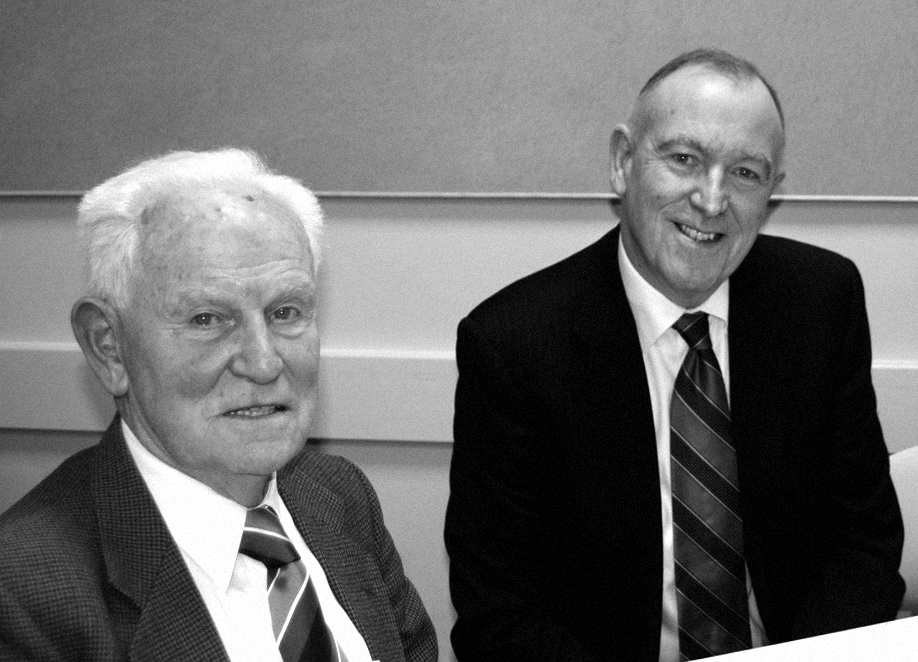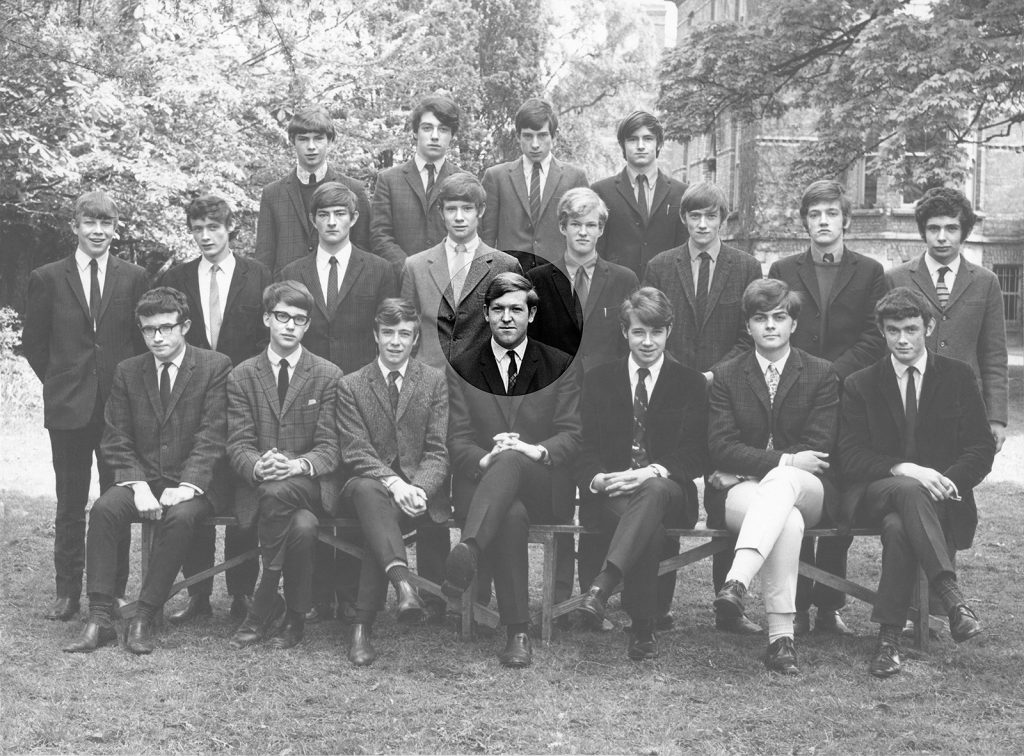Ronan Murphy
2 July 2021Where did you grow up?
Life started in Crumlin where I went to National School. The family moved to Mount Merrion when I was around 11 by which stage I had started in St. Conleth’s.
How did you come to be at St. Conleth’s?
With a father (Michael Murphy) who taught in the School, a Godfather (Kevin Kelleher) who was Headmaster of the school, and my older brother by two years, Dermot, already attending the school, it was something of a foregone conclusion I would end up in St. Conleth’s. Sometimes one just gets lucky in life!
My memories of the school are happy ones. At that time the school was smaller (we were a Leaving Certificate class of 20) and the school had something of a family feel to it. I was very fortunate in my classmates many of whom have remained life-long friends and with whom I socialise regularly. I wasn’t particularly studious but managed to get by in most subjects. In early days we had a wonderful English teacher, Michael Gardner, who instilled in us a love of reading, storytelling and an appreciation for how to express oneself in writing.
Throughout my time in organisational life I have been struck by the importance of the latter. Looking for approval for a particular request or course of action usually required an ability to argue persuasively in writing. In my career I was regularly involved in recruiting graduates and was frequently surprised that many very bright people struggled to put their points of view in writing in a persuasive and coherent manner.

Favourite Subject
Perhaps my favourite topic at school was debating. I remember great class debates and regular inter-school debating competitions. Others were more skilled than me but what debating did for all of us was to teach us how to structure arguments and deliver them confidently. That’s a skill that remains relevant through life. Confidence too is an important attribute. If pupils can graduate from school with a decent level of self-confidence then life’s challenges are more easily met and success in their chosen field more easily achieved. I thought St. Conleth’s was a very good environment for instilling confidence in its pupils.

On the sports front we had opportunities to play rugby, cricket, tennis, fencing, even boxing at one stage. Being big for my age helped with rugby which I really enjoyed. With Kevin Kelleher’s reputation as a top-class international referee we might have been expected to be more successful on the pitch. Suffice to say we learned from an early age how to handle defeat!
Fondest Memory
I wouldn’t single out any particular memory but rather take my experience of St. Conleth’s in the round. I felt very happy there. The school was on a scale that I think all pupils could relate to. I doubt anyone ever felt lost or over-looked or felt like being on a conveyor belt in a factory. I had great classmates. The school didn’t over-emphasise the academic at the expense of giving its pupils a broad education and providing furniture for the mind.
Who/what influenced your career choice?
On graduating from school I studied Economics, Politics and Statistics in UCD. The principle reasons for choosing that degree course were that my brother was already taking the same degree course and seemed to be enjoying it, plus an absence of any strong sense of knowing what I wanted to do.
Two years into a three-year degree course and I still had no idea what I wanted to do after college. I knew that prolonging the academic life was not for me but what to do was still an unanswered question. I had applied in final year for a number of different jobs in different industries and by great good fortune was successful in my application to join Citibank N.A.’s branch in Dublin.
Citibank was a terrific place to work and to gain experience. Graduate entrants were sent on formal training courses throughout their early careers, often in exotic locations, and that was a significant attraction. On one of those courses I spent four months in Milan (one of the less exotic locations) attending daily credit assessment classes and travelling to more beautiful locations at weekends. Milan was a great base from which to explore. It was one of the experiences of my life and confirmed for me that Corporate Banking was something I really enjoyed.
Citibank also gave me an opportunity to take on significant responsibilities early in my career when I was asked to run its Cork branch at the age of 22. That was quite the experience! While I was there the 1976 Associated Banks strike took place. This did not involve Citibank which stayed open and which overnight became the go-to bank in Cork. It meant that what had been a two-year marketing plan to penetrate Cork’s corporate customer base was no longer required – the customers were queuing up to open accounts with us!
I well remember that summer of ‘76 as the weather was fantastic but I saw little of it. Coping with the phenomenal growth in business meant long hours and getting home towards midnight most days. Part of the reason for the long days was that some customers were making substantial cash deposits during the day which we didn’t have the resources to count on the spot. So while they told us how much was in their deposits we couldn’t give them a receipt until we counted the money after the branch closed. I don’t recall us ever having a discrepancy between the customer’s figure and our own.
I spent 15 years with Citibank in Ireland during which I did a number of different jobs including corporate banking, running the finance function and setting up a venture capital business. That variety of jobs was a big part of the reason I stayed with the bank. Large organisations have the capacity to offer many different careers within the same institution.
I left in 1987 to help set up a corporate bank in Bank of Ireland. This involved bringing together two significant lending arms of the bank with all the challenges that sort of organisational change entails. It was a terrific learning experience.
Bank of Ireland also had an emphasis on training and education. I was fortunate to be sent by the Bank to Harvard to participate in their Programme for Management Development. I remain grateful for that opportunity which broadened my understanding of management and prepared me to take on additional responsibilities.
Proudest Achievement
Again, being part of a large organisation such as Bank of Ireland presented opportunities to do different things throughout one’s career. One of my proudest achievements was helping to build-up an international lending business out of the International Financial Services Centre. I was fortunate to have a team of exceptionally bright and energetic colleagues with whom it was a pleasure to work. The focus was international and saw us open offices in the U.S., England, Germany, France and Australia. It was an exciting time in the markets and we had great success. Thankfully the business withstood the collapse of international financial markets in 2008 and, from what I hear, continues to thrive.
By the time of the international financial crisis I had moved on in the Bank to take up a newly created Chief Risk Officer role and become a member of the Group Executive Committee. Timing is everything in life! However, it’s a time I would not have missed for the world. I had spent almost 40 years in banking and thought I knew something about the subject. There’s nothing like a crisis to teach you about the true fundamentals of an industry. In banking that meant liquidity and capital. I learned more about these cornerstones of the business in a few years than in all the years prior to the crisis.
Advice for people working in the banking industry/general advice
The banking industry has changed very significantly since my time so I hesitate to give advice to anyone contemplating a career in it. However, if choosing such a career path then I would emphasise the importance of building your CV throughout your time in the organisation. That advice goes for working in any large organisation. Be proactive in putting yourself forward for relevant training that the organisation offers and take on different roles even, or especially, when they may seem outside your comfort zone. If you want to progress through the ranks then having a CV which demonstrates an ability to take on different roles will always compare well with a CV which is narrowly based.
Conclusion
In conclusion I should say how delighted I am that the Murphy association with St. Conleth’s continues to this day. My granddaughter, Laoise, is a proud member of the Senior Infants class!
The year according to Kevin